
Trump supporters take a selfie with white nationalist leader Nathan Damigo, who punched a woman at the last Berkeley rally.: image via Shane Bauer @shane_bauer, 27 April 2017

A white nationalist punches her in the face. Then they come after her and her family. Still no charges from police.: image via Shane Bauer @shane_bauer, 27 April 2017

This guy with the American flag attached to a bat insisted that if I quote him, I refer to him as "the giant.": image via Shane Bauer @shane_bauer, 27 April 2017
Approaching the 50th Anniversary of the Free Speech Movement
Platz Uritzki, Saint Petersburg: Natan Altman, October 1918: a temporary work of post-Cubist architectural sculpture erected to publicly commemorate the first anniversary of the October Revolution; by the following anniversary, Altman's canvasses "had already been cut up and used for soldiers' foot bindings" -- Susan M. Cerbesero: The Anniversaries of the October Revolution, 1918-1927 (2005): photographer unknown, from G: Journal for Elemental Form Creation 3, 1924 (Estate of Natan Altman/RAO, Moscow/VAGA, New York)
It lasted one moment, like the full blown lustre
of a peach or a rose, the next moment
that airy dream was over, now remain the unlit business
blocks, rats scurrying from trash bin to glassed-in bank
arcade, pavement carpeted with wet leaves, bodies sheltering
in the light rain dripping from the building overhang, the bones, the blows
that fall from all directions, from unlikely sources,
the scanning search beam of the police cruiser
cutting through the red mist, the quiet click of the picture of no one
being taken by an autoprogrammed camera somewhere
beneath the big clock on the bank
outside the BART station, the broken
clock that's never been correct, just as
the O/C guy who weirdly resembles Allen Ginsberg
confides in haste-elided rapidfire aside I'maJewGeminiJustLikeBobbyDyla
as he rushes past on his nightly rounds, quick-pace
orchestra conductor of a speeded-up cartoon ghost symphony
waving his broken-off-wooden-chair-rung baton, furiously
banging on every newspaper box
in repetitive percussive impatient urgent enquiry
to see if the lost magic of revolution
might still be lingering
in a broken coin slot
of a peach or a rose, the next moment
that airy dream was over, now remain the unlit business
blocks, rats scurrying from trash bin to glassed-in bank
arcade, pavement carpeted with wet leaves, bodies sheltering
in the light rain dripping from the building overhang, the bones, the blows
that fall from all directions, from unlikely sources,
the scanning search beam of the police cruiser
cutting through the red mist, the quiet click of the picture of no one
being taken by an autoprogrammed camera somewhere
beneath the big clock on the bank
outside the BART station, the broken
clock that's never been correct, just as
the O/C guy who weirdly resembles Allen Ginsberg
confides in haste-elided rapidfire aside I'maJewGeminiJustLikeBobbyDyla
as he rushes past on his nightly rounds, quick-pace
orchestra conductor of a speeded-up cartoon ghost symphony
waving his broken-off-wooden-chair-rung baton, furiously
banging on every newspaper box
in repetitive percussive impatient urgent enquiry
to see if the lost magic of revolution
might still be lingering
in a broken coin slot
TC: Approaching the 50th Anniversary of the Free Speech Movement, November 2012, from Truth Game, 2013

Crowd in front of Sproul Hall in rain during Free Speech Movement rally: photo by Ron Hecker, December 1964 (UC Berkeley, University Archives)

Crowd in front of Sproul Hall in rain during Free Speech Movement rally: photo by Ron Hecker, December 1964 (UC Berkeley, University Archives)

Surrounding a University police car in Sproul Hall Plaza on 1 October, demonstrators listen to Mario Savio (standing on car roof) protest arrest of Jack Weinberg. Weinberg remained in the stranded car for 32 hours, until an agreement between President Kerr and protest leaders ended demonstration: photo by Don Kechely, 1 October 1964 (UC Berkeley, University Archives)

Surrounding a University police car in Sproul Hall Plaza on 1 October, demonstrators listen to Mario Savio (standing on car roof) protest arrest of Jack Weinberg. Weinberg remained in the stranded car for 32 hours, until an agreement between President Kerr and protest leaders ended demonstration: photo by Don Kechely, 1 October 1964 (UC Berkeley, University Archives)

Memorial to the Free Speech Movement in Berkeley: image by Coro, 13 January 2009
Screaming Me-Me's

A video of Nathan Damigo (top) and Emily Rose Marshall (below) during the street fighting in Berkeley on April 15 went viral: photo by Stephen Lam/Reuters via ZUMA Press 15 April 2017
A Punch in the Face Was Just the Start of the Alt-Right's Attack on a Berkely protester: Then came the threats, doxing, and meme warfare: Shane Bauer, Mother Jones, 27 April 2017
On
Saturday, April 15, Emily Rose Marshall drove up to Berkeley,
California, from Los Angeles with a group of friends who were part of
the anarchist Oak Roots Collective. They had heard about the "free
speech" rally being held in Berkeley by an array of Donald Trump
supporters,
militiamen, and white supremacists. "We saw this was a rally meant to
uplift neo-Nazis and the alt-right," Marshall says. "We wanted to be
bodies yelling and screaming in the street, adding to the number of
people letting neo-Nazis know they couldn't just show up for racism."
By the time Marshall and her friends arrived in downtown Berkeley, the scene had devolved into street skirmishes between the right-wing side and "antifascist" counterprotesters. She and her friends were dressed in black like their "antifa" comrades, masking their faces to protect their identities. They went near the front line where people were facing off. An antifa activist lobbed a tear gas canister, but the wind blew the cloud back and right wingers rushed the antifa side, swinging.
When the short melee was over, Marshall wasn't entirely sure what had
just happened. Marshall, a 95-pound, 20-year-old white woman with
dreadlocks who also goes by the alias Louise Rosealma, had been punched
at least twice. The crew of right wingers who Marshall, her boyfriend,
and others had tussled with for a minute ran up the street in pursuit of
other antifa. She didn't know it yet, but the man who had hit her was
Nathan Damigo, a 30-year-old ex-Marine and head of the white nationalist
group Identity Evropa. Within minutes, a video of her getting punched was on its way to going viral.
Blood was streaming from Marshall's boyfriend's nose, which looked
like it might be broken. They left the rally and went to a hospital.
After she got in the car, she checked her phone. Hate emails started
streaming in. "Would you be interested in doing a role play photoshoot,"
read one she later forwarded to me, "where you are being beaten and
raped (simulated), by a group of white nationalists?" "I absolutely love
watching you get punched in your ugly ass face on YouTube. I can watch
it over and over," another read. "Might I suggest leaping your ugly,
hairy ass from a tall building? Or, perhaps, swallow a bottle of
sleeping pills? How's it feel to finally be treated like a man? Haha."
Since then, she says she's received more than 1,500 harassing or
threatening messages via email, Facebook, and Instagram.
How did they know who Marshall was, and so quickly? One emailer
signed off, "Praise Kek and Hail Victory," hinting at the source of the
storm. "Kek" is the god of a satirical religion that originated in the meme-driven
world of 4chan, the online message board popular among the so-called
alt-right.
Archived 4chan threads provide a glimpse into workings of the
alt-right hive mind on the day of the Berkeley showdown. "Looks like a
rat faced kike," one commenter wrote shortly after the punching video
was posted. Threads discussing the video became interspersed with memes
of cartoon Jews with oversized noses. "That Jew whore thought she was
the Jew bear," one poster wrote. (Marshall is not Jewish.) Within hours
of her getting punched, people on 4chan and other message boards
publicized Marshall's home address and contact information for her
parents, grandmother, and 15-year-old brother. They discovered that
she'd appeared in pornography. They turned explicit images of her into
memes and posted links to her sex videos on her grandmother's Facebook
page. Before Marshall got back to Los Angeles that Saturday night, her
mom had received so many calls that she'd unplugged the phone.



Meme of Damigo punching Marshall spread on 4chan: image via 4chan

Meme of Damigo punching Marshall spread on 4chan: image via 4chan
Some on 4chan went to work building a case justifying Damigo's
decision to punch Marshall. Before arriving at the rally, she'd posted
on Facebook that she was "determined to bring back 100 nazi [sic] scalps," a reference to the Quentin Tarantino movie Inglourious Basterds.
This was presented as evidence that she'd come to fight and was
therefore a fair target. Posters also found a Reuters photo and a video
showing Marshall holding a glass bottle as Damigo rushed toward her.
Some online posters claimed she had been throwing bottles at them. A
military gear site called Tactical Shit claimed Marshall was putting
powerful M80 firecrackers inside bottles and throwing them at rally
attendees:
"She was literally making IEDs. This makes her no better than the Boston Marathon bomber." Damigo, the site claimed, was eliminating a bomb threat.
"She was literally making IEDs. This makes her no better than the Boston Marathon bomber." Damigo, the site claimed, was eliminating a bomb threat.
Marshall insists none of this is true. She says she picked the bottle
off the ground to stave off attackers when the fight began. There is no
evidence to corroborate her account or the alt-right's. All that is
clear based on video of the incident is that Marshall was holding a
bottle as Damigo rushed in and hit her. She fell to the ground, dropped
the bottle, got up, and stumbled away. A moment later, Damigo found her
again and punched her in the face. (Asked for a comment from Damigo,
Identity Evropa responded, "The video footage and photographs of the
event as well as Miss Rosealma's social media speak for themselves.
Other than that we have no further comment.")
The alt-right is aware that the new fight with its anti-fascist
opponents is as much a clash of brawn on the streets as a culture war
online. During the lead up to the April 15 rally, one 4chan commenter
described it as "a battle on the front lines and the lefties help us
make fun memes for the ages." At the rally, some right-wing attendees
carried signs referencing obscure 4chan memes. Even as people were
fighting in the streets, the 4chan meme factory was already churning out
content.

Meme warfare is uniquely suited to the far right. Unlike the antifa's
culture of anonymity, the far-right rallies around visible strongmen.
Outlandish costumes like Spartan helmets and outrageous acts like
Damigo's "Falcon Punch" create excellent hero memes, which galvanize supporters and refute
critics. Where a man punching a woman in the face would have previously
been seen as an act of cowardice, it is now quickly recast as an act of
heroism against terrorism, of moralism over hedonism, or of the master
race against Jewish globalists.
The alt-right tried to identify others at the Berkeley rally as well.
Message boards posted pictures and purported names of various antifa
activists who'd shown up in Berkeley. One antifa man who hit someone in
the head with a bike lock was allegedly identified through a meticulous effort of combing through images of the rally and
matching the sunglasses and facial hair of an unmasked man with the
masked bike lock wielder's.
Berkeley Police Department spokesperson Sergeant Andrew Frankel says
the BPD is aware of the video, but he declined to state whether it is
pursuing charges against Damigo. Marshall says she has avoided pressing
assault charges against Damigo because she is afraid that if "they take
action against him, I'll have actual Nazis at my door instead of the
trolls."
Remember this is a day to celebrate free speech. Defend yourself against
violent protestors, but follow Police orders. #BlueLivesMatter: image via The Proud Boys @ProudBoysUSA, 27 April 2017


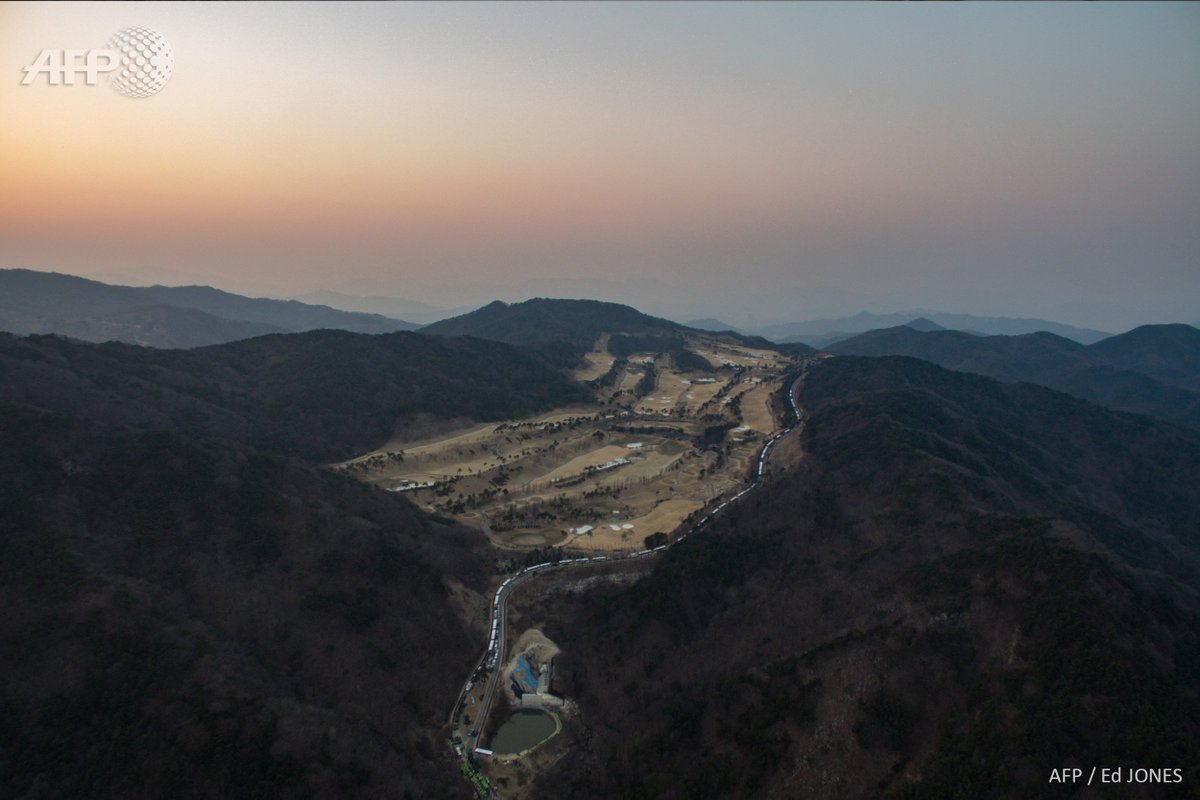
This is the South Korean golf course where the US is deploying its THAAD missile defence system: image via Ed Jones @edwardesjones, 25 April 2017

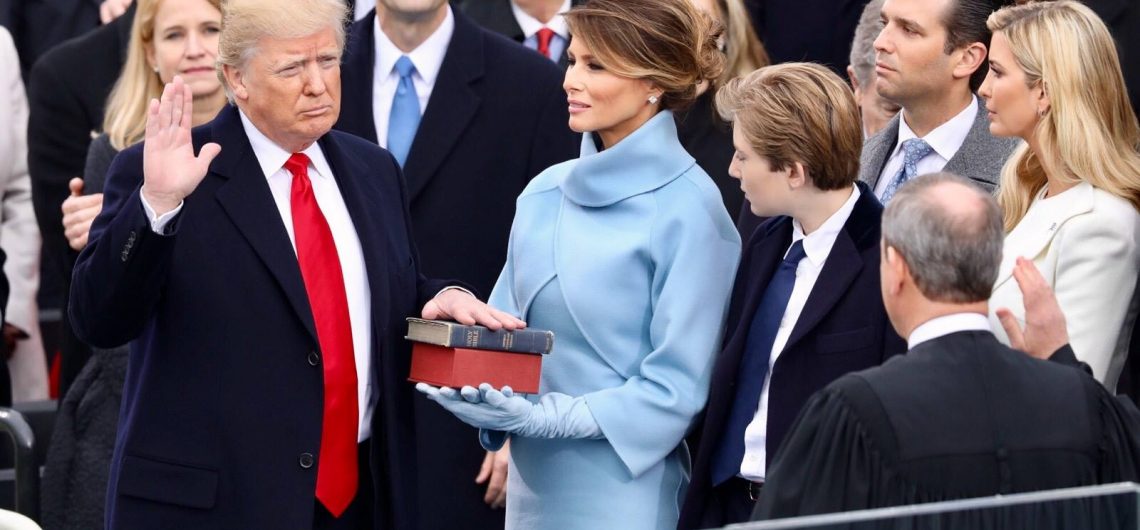
Trump's 100 days: US air campaign hammers #Yemen with almost a strike a day #drones: image via Jack Serle @jackserle, 27 April 2017


SYRIA - Syria accuses Israel of strike near Damascus airport. @AbdDoumany: image via Frédérique Geffard @fgeffardAFP, 27 April 2017

WEST BANK - Palestinian youth play volley ball as the sun sets in Gaza City. Photo @mohmdabed: image via Frédérique Geffard @fgeffardAFP, 27 April 2017
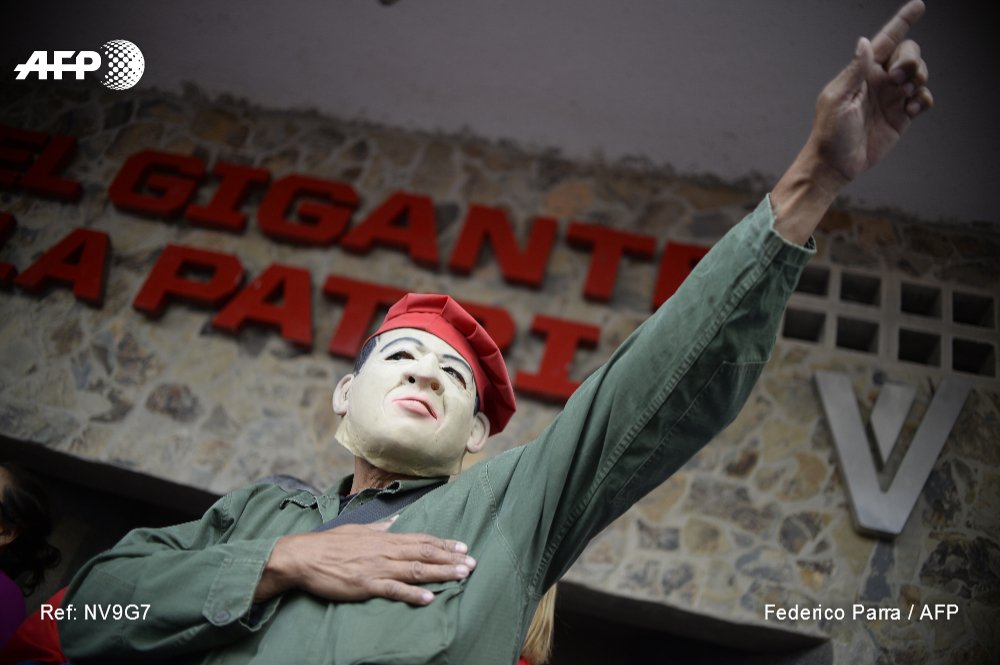
Venezuela Supporters of Venezuelan President Nicolas Maduro rally in Caracas. Photo @federicoparra: image via Frédérique Geffard @fgeffardAFP, 27 April 2017

#Iraq A displaced Iraqi man rides a donkey as pro-government Hashed al-Shaabi paramilitary forces advance towards Hatra. Photo Ahmad Al-Rubaye: image via Frédérique Geffard @fgeffardAFP, 27 April 2017

#Nigeria Peace reigns in Nigeria's Damasak but children still missing. Photo @Floplaucheur: image via Frédérique Geffard @fgeffardAFP, 27 April 2017


Pres. Donald Trump pats a U.S. Marine on the back as first lady Melania Trump looks on in Washington. #APPhoto by Pablo Martinez Monsivais: image via AP Images @ AP_Images, 27 April 2017
Robert Creeley: 13 Poems
Robert Creeley: Versions (after Hardy)


02072. coast: photo by Junk Male (borrowed_time), 22 February 2008
Robert Creeley: America
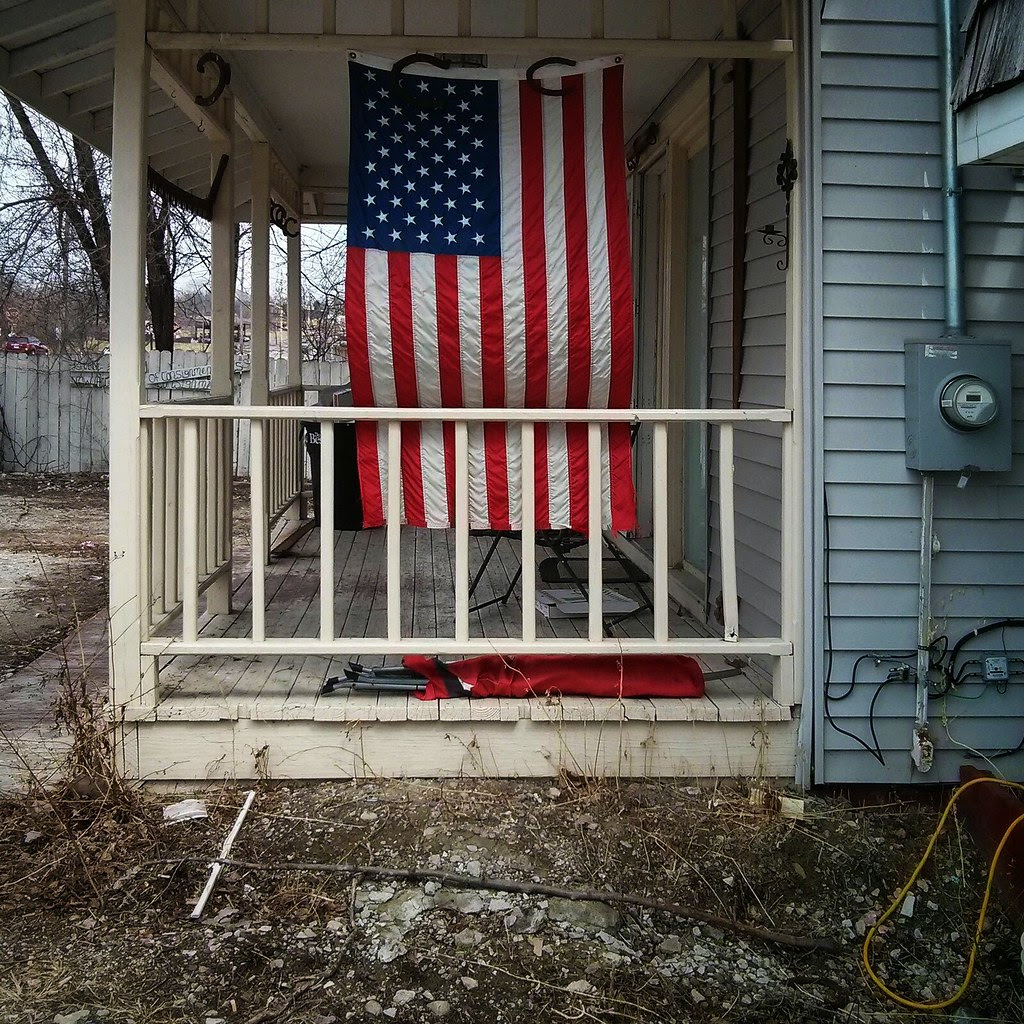
porchflag (Des Moines, Iowa): photo by greg (It'sGreg), 6 April 2014
Robert Creeley (1926-2005): America, from Pieces (1969)

Killer blob (Los Angeles): photo by anotherswede ON A BREAK, 7 July 2013
Ella: Gerhard Richter, 2007 (private collection)
![[East+Wind+Over+Weehawken+Bigger.jpg]](https://blogger.googleusercontent.com/img/b/R29vZ2xl/AVvXsEjn6cV9jseYKujzaZxrBcggUiuhYToupbezLgIp2idoW-OF4Y5Hh18e1eSC9VBoXJ3XRGETJQmvtTPpxpSWIeI2rEenQiPVjUMK6oUWHMiRsK5NdiCJ_-MhrHKAMWgHY71mIssYbczx1Q/s1600/East+Wind+Over+Weehawken+Bigger.jpg)
East Wind over Weehawken: Edward Hopper, 1934 (Pennsylvania Academy of Fine Arts)
Starlings perform a murmuration at sunset near Gretna Green, in the south of Scotland: photo by Owen Humphreys/PA Wire, 29 November 2016
Starlings perform a murmuration at sunset near Gretna Green, in the south of Scotland: photo by Owen Humphreys/PA Wire, 29 November 2016
Multitudes of Starlings appear at Newton, and run feeding about in the grass-fields. No number is known to breed in these parts. This is therefore an emigration from some other district.
Entry for 23 November 1780, in The Journals of Gilbert White
Sometimes it seems just
a push would get you over
the rooftops and out into air
it feels has nothing but
space to give you. This
riding high was made for serious
people who want to live but
can't. Just a push and you're
out, and free as the birds.
Out the window of the Eismeer station of the Jungfraubahn, Switzerland: photo by Stan Shebs, 1996
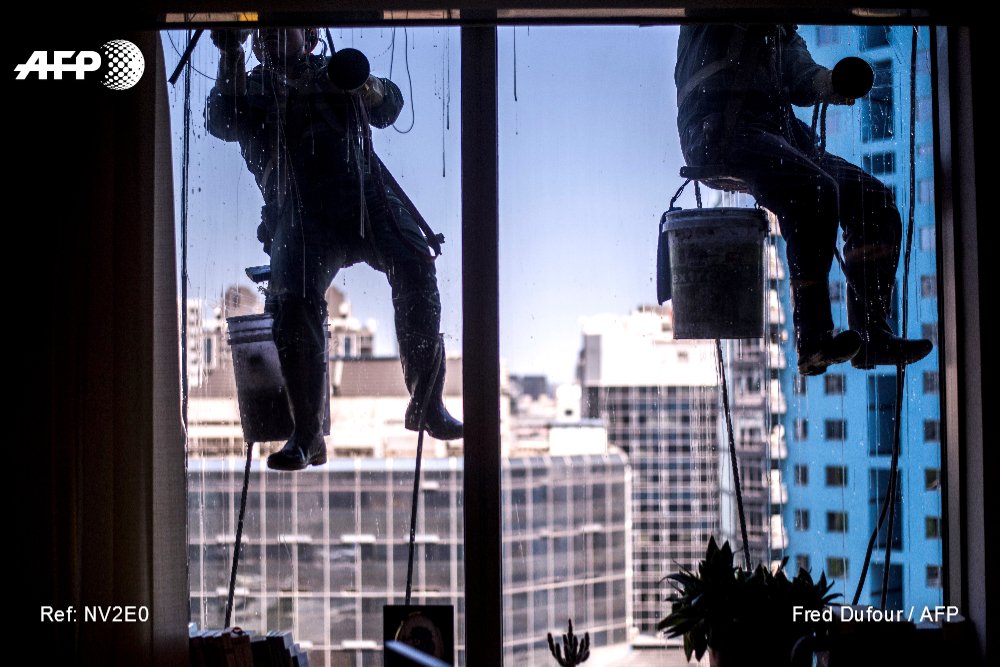
#China Chinese workers clean the window of a building in Beijing. Photo @freddufour_afp: image via Frédérique Geffard @fgeffardAFP, 27 April 2017
Robert Creeley (1926-2005): Window, from Places (1990)



Street scene, Brockton [?], Massachusetts: photo by Jack Delano, c. November/December 1940 (Farm Security Administration/Office of War Information Collection, Library of Congress)

Small farm of John P. Collier, Taunton, Massachusetts: photo by Jack Delano, January 1941 (Farm Security Administration/Office of War Information Collection, Library of Congress)
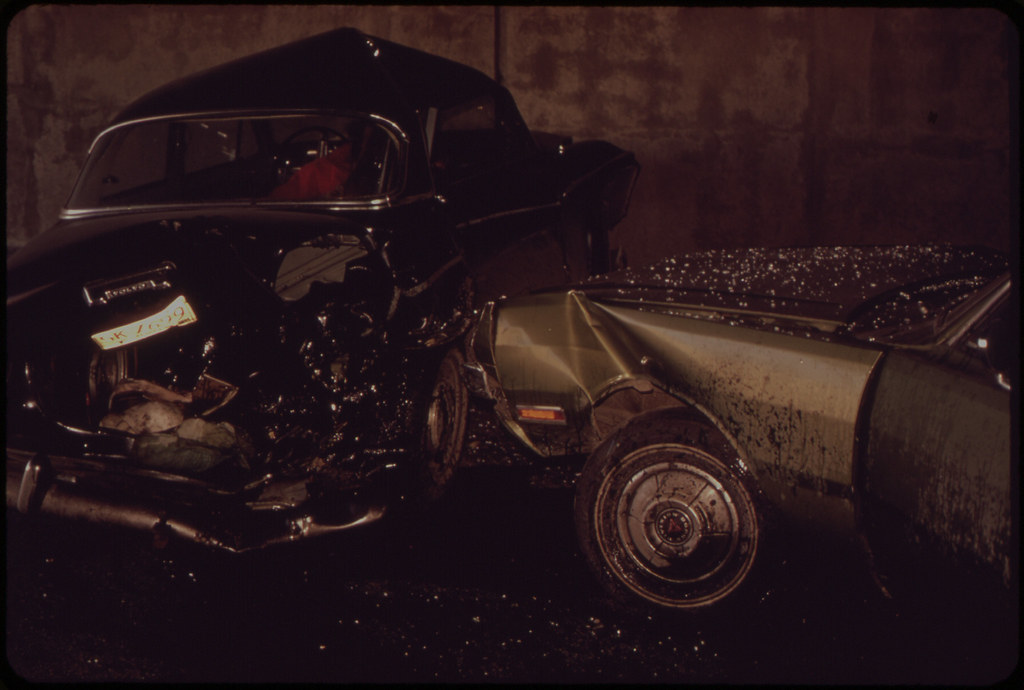
Robert Creeley (1926-2005): Somewhere, from For Love, 1962
Photos by Ernst Halberstadt, 1973, for the Environmental Protection Agency's Documerica Project (U.S. National Archives)
A Palestinian boy rests on an old armchair in front of a dilapidated house on Friday in Gaza City: photo by Mohammed Abed/AFP, 22 May 2015

A Palestinian boy rests on an old armchair in front of a dilapidated house on Friday in Gaza City: photo by Mohammed Abed/AFP, 22 May 2015

In the Forest of Fontainebleau: Camille Corot (1796-1875), c. 1860-65, oil on canvas, 46 x 59 cm (National Gallery of Art, Washington)
Just when I thought I had it made, I lost it.
Love is a place, not a person, love is

Fontainbleau, the Bas Breau Road: Camille Corot (1796-1875), c. 1830-35, oil on canvas (private collection)
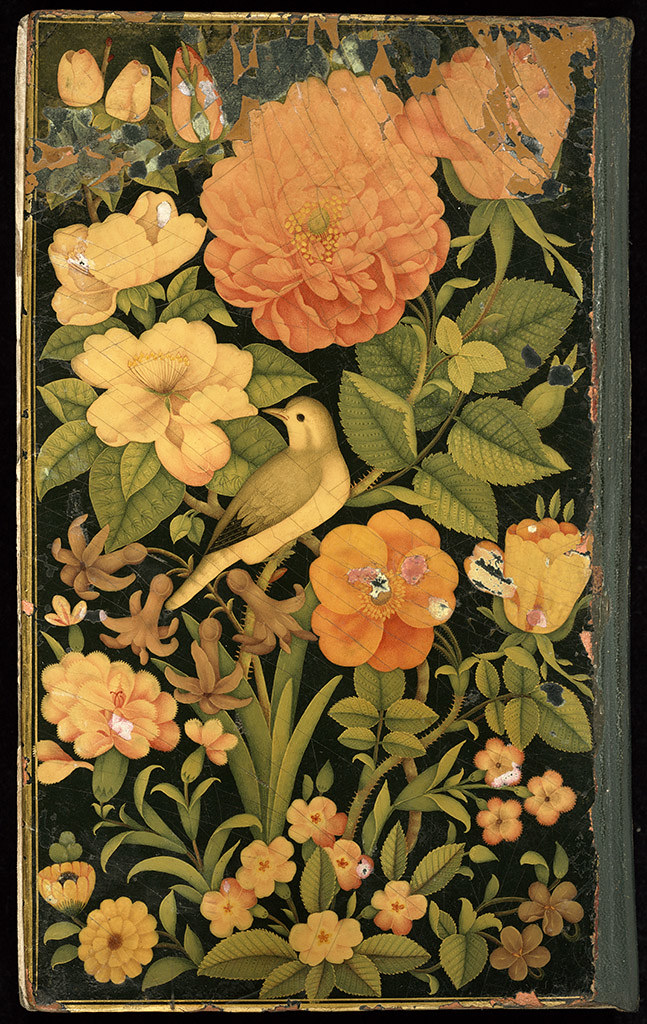
Persian lacquer binding, 18th century: cover of Persian manuscript: Collected Works of Ḥāfiẓ: Dīvān-i Ḥāfiẓ [?1799] (Rare Books and Fine Printing Collection, Alexander Turnbull Library, National Library of New Zealand)

"New life": Lane's Emulsion restores and maintains health: Stanley Davis (1882?-1938), colour lithograph by the Christchurch Press, 1927 (Printed Ephemera Collection, Alexander Turnbull Library, National Library of New Zealand)


The Great Levante … How's Tricks: poster for Opera House, Wellington, chromolithograph, 1941 (Printed Ephemera Collection, Alexander Turnbull Library, National Library of New Zealand)
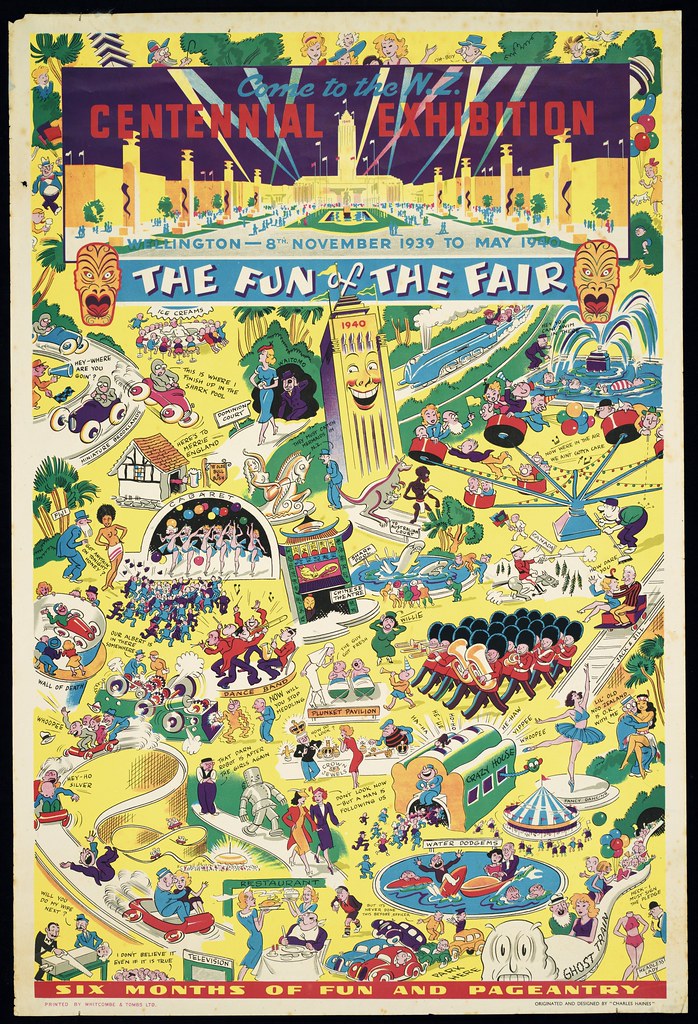
The Fun of the Fair: poster for New Zealand Centennial Exhibition of 1939-40, offset lithograph by Charles Haines Advertising Agency Ltd, N.Z., November 1939 (Printed Ephemera Collection, Alexander Turnbull Library, National Library of New Zealand)

New Zealand Line. R.M.S. Rangitata in Gaillard Cut: poster for New Zealand Shipping Company Ltd, screenprint, early 1930s (Printed Ephemera Collection, Alexander Turnbull Library, National Library of New Zealand)

Middlemarch, Central Otago: photo by bobsan88, 10 March 2017

Weddeburn, Central Otago: photo by bobsan88, 10 March 2017

Naseby, Central Otago: photo by bobsan88, 9 March 2017

Ophir, Central Otago: photo by bobsan88, 7 March 2017

Clyde, Central Otago: photo by bobsan88, 5 March 2017

Haast, South Westland: photo by bobsan88, 5 March 2017

Fox, South Westland: photo by bobsan88, 4 March 2017

Clyde, Central Otago: photo by bobsan88, 5 March 2017

Rambla. Collingwood, Golden Bay.: photo by bobsan88, 23 February 2017

Westport, NZ: photo by bobsan88, 22 April 2017

Okarito, South Westland, NZ: photo by bobsan88, 25 April 2017

This guy with the American flag attached to a bat insisted that if I quote him, I refer to him as "the giant.": image via Shane Bauer @shane_bauer, 27 April 2017

#Athens: Banner Drop in Solidarity With #Berkeley #antifa #antireport: image via Enough is Enough @enough 14, 27 April 2017
Mourning Becomes Immediate

This is the South Korean golf course where the US is deploying its THAAD missile defence system: image via Ed Jones @edwardesjones, 25 April 2017

March 17th we reported 1,000th alleged Coalition civilian casualty event tracked by us since 2014.
In just 5 more weeks it jumped to 1,250: image via Airwars @airwars, 26 April 2017

Trump's 100 days: US air campaign hammers #Yemen with almost a strike a day #drones: image via Jack Serle @jackserle, 27 April 2017

Flames believed to be from an explosion near Damascus International Airport can be seen from the rebel-held town of Douma: image via AFP news agency @AFP, 27 April 2017

SYRIA - Syria accuses Israel of strike near Damascus airport. @AbdDoumany: image via Frédérique Geffard @fgeffardAFP, 27 April 2017

WEST BANK - Palestinian youth play volley ball as the sun sets in Gaza City. Photo @mohmdabed: image via Frédérique Geffard @fgeffardAFP, 27 April 2017

Venezuela Supporters of Venezuelan President Nicolas Maduro rally in Caracas. Photo @federicoparra: image via Frédérique Geffard @fgeffardAFP, 27 April 2017

#Iraq A displaced Iraqi man rides a donkey as pro-government Hashed al-Shaabi paramilitary forces advance towards Hatra. Photo Ahmad Al-Rubaye: image via Frédérique Geffard @fgeffardAFP, 27 April 2017

#Nigeria Peace reigns in Nigeria's Damasak but children still missing. Photo @Floplaucheur: image via Frédérique Geffard @fgeffardAFP, 27 April 2017

#South Sudan Relatives begin to mourn moments after a patient with
cholera dies at the temporary specialized hospital in Mingkaman.
@AFPphoto: image via Frédérique Geffard @fgeffardAFP, 27 April 2017

Pres. Donald Trump pats a U.S. Marine on the back as first lady Melania Trump looks on in Washington. #APPhoto by Pablo Martinez Monsivais: image via AP Images @ AP_Images, 27 April 2017
Robert Creeley: 13 Poems
Robert Creeley: Versions (after Hardy)

02147. this land: photo by Junk Male (borrowed_time), 24 March 2008
- ..............after Hardy
Why would she come to him,
come to him,
in such disguise
to look again at him --
look again --
with vacant eyes --
and why the pain still,
the pain --
still useless to them --
as if to begin again
again begin --
what had never been?
.
Why be
persistently
hurtful --
no truth
to tell
or wish to?
Why?
.
The weather's still grey
and the clouds gather
where they once walked
out together,
watched the world with
a faint happiness,
watched it die
in the same place.

02072. coast: photo by Junk Male (borrowed_time), 22 February 2008
Robert Creeley (1926-2005): Versions (after Hardy), from Mirrors, 1981
Robert Creeley: America

porchflag (Des Moines, Iowa): photo by greg (It'sGreg), 6 April 2014
America, you ode for reality!
Give back the people you took.
Let the sun shine again
on the four corners of the world
you thought of first but do not
own, or keep like a convenience.
People are your own word, you
invented that locus and term.
Here, you said and say, is
where we are. Give back
what we are, these people you made,
us, and nowhere but you to be.
Give back the people you took.
Let the sun shine again
on the four corners of the world
you thought of first but do not
own, or keep like a convenience.
People are your own word, you
invented that locus and term.
Here, you said and say, is
where we are. Give back
what we are, these people you made,
us, and nowhere but you to be.
Robert Creeley (1926-2005): America, from Pieces (1969)

Killer blob (Los Angeles): photo by anotherswede ON A BREAK, 7 July 2013
Robert Creeley (1926-2005): America, from Pieces (1969)
Robert Creeley: Generous Life
Ella: Gerhard Richter, 2007 (private collection)
Do you remember the way we used to sing
in church when we were young
and it was fun to bring your toys with you
and play with them while all the others sung?
My mind goes on its own particular way
and leaves my apparent body on its knees
to get up and walk as far as it can
if it still wants to and as it proves still able.
Sit down, says generous life, and stay awhile!
although it's irony that sets the table
and puts the meager food on broken dishes,
pours out the rancid wine, and walks away.
in church when we were young
and it was fun to bring your toys with you
and play with them while all the others sung?
My mind goes on its own particular way
and leaves my apparent body on its knees
to get up and walk as far as it can
if it still wants to and as it proves still able.
Sit down, says generous life, and stay awhile!
although it's irony that sets the table
and puts the meager food on broken dishes,
pours out the rancid wine, and walks away.
Betty: Gerhard Richter, 1991
(St. Louis Art Museum)
Robert Creeley (1926-2005): Generous Life from Yesterdays (2002)
Robert Creeley: The Times
![[East+Wind+Over+Weehawken+Bigger.jpg]](https://blogger.googleusercontent.com/img/b/R29vZ2xl/AVvXsEjn6cV9jseYKujzaZxrBcggUiuhYToupbezLgIp2idoW-OF4Y5Hh18e1eSC9VBoXJ3XRGETJQmvtTPpxpSWIeI2rEenQiPVjUMK6oUWHMiRsK5NdiCJ_-MhrHKAMWgHY71mIssYbczx1Q/s1600/East+Wind+Over+Weehawken+Bigger.jpg)
East Wind over Weehawken: Edward Hopper, 1934 (Pennsylvania Academy of Fine Arts)
If they had something
to worry about these
people wouldn't sit there
thinking about what
doesn't even exist they
would take each day as it
comes and thank their
lucky stars they had
enough to eat it says here
it reflects the hopeless
times make what isn't
the case all that is.
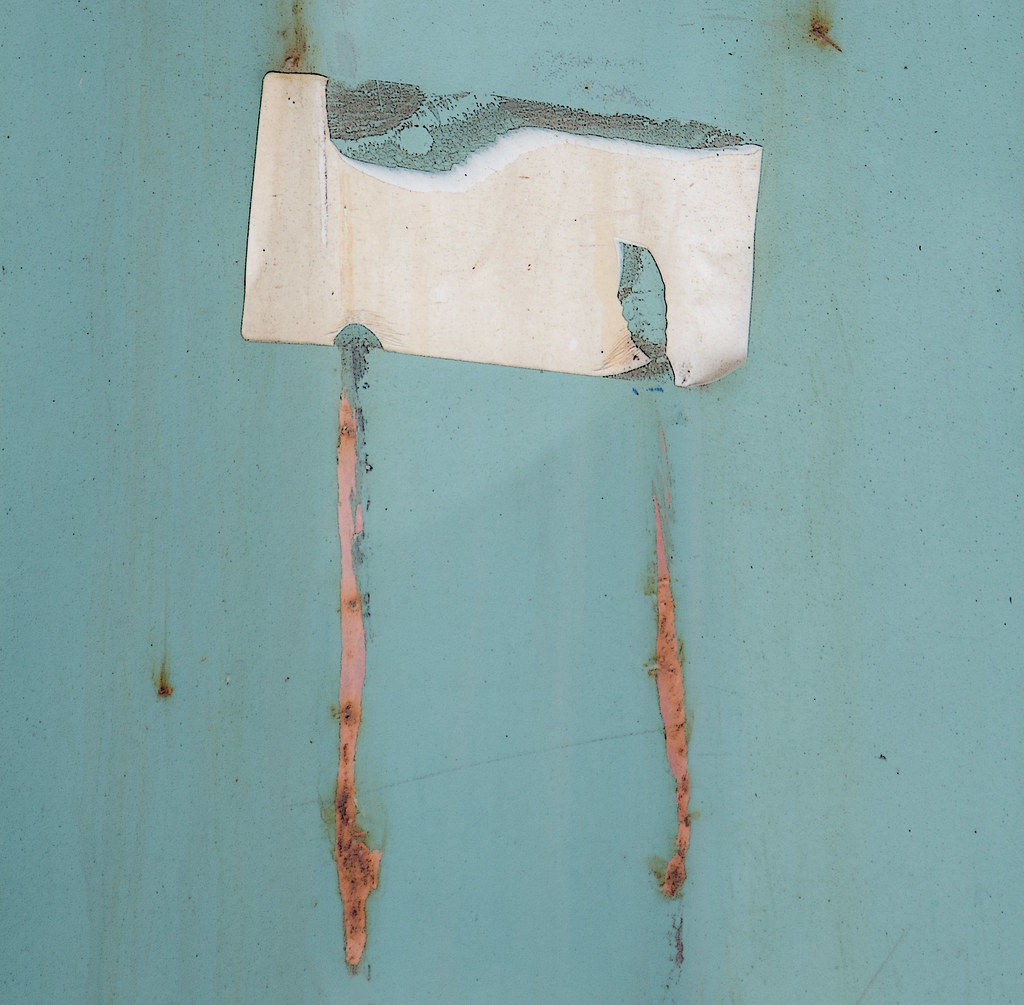
Container, detail [Larvik]: photo by astrid westvang, 12 April 2017
Robert Creeley (1926-2005): The Times, from Places (1990)
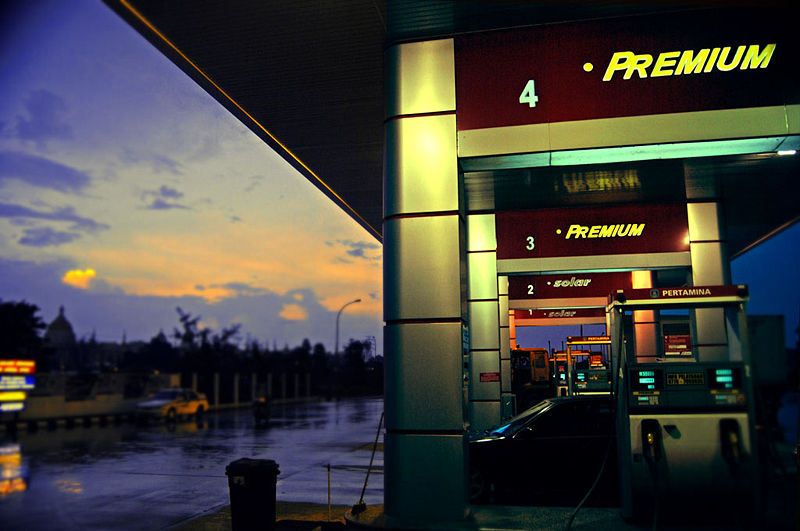
Rain, gas station, dawn: photo by Riza Nugraha, 2007
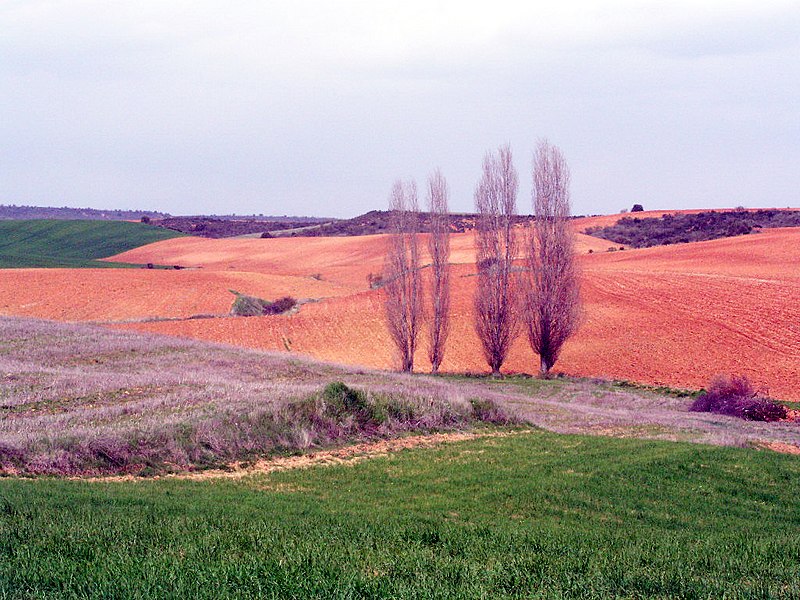
Malaguilla, Provincia de Guadalajara, Castilla-La Mancha, Spain: photo by Häkan Svensson, 2004
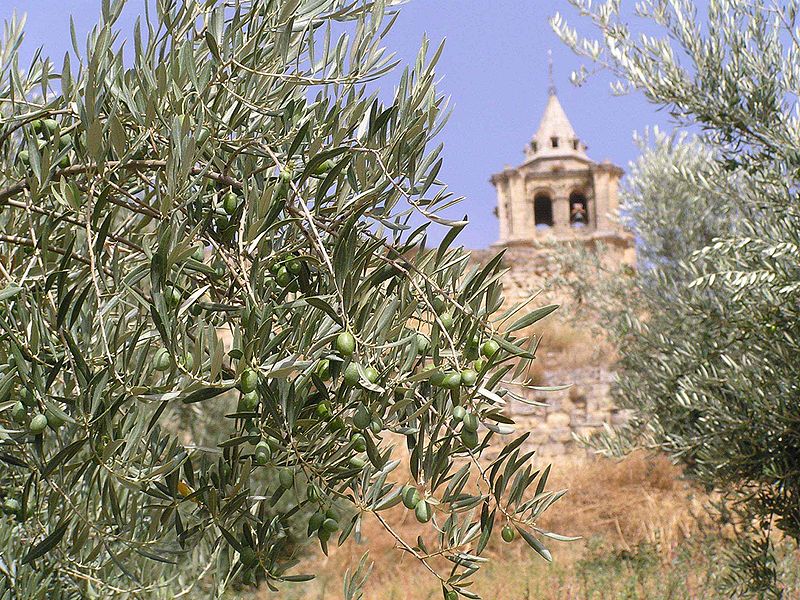
Olivar en Alcalá la Real, Jaén, España: photo by Michelangelo-36, 2005
Robert Creeley: The Rain
What am I to myself
that must be remembered,
insisted upon
so often? Is it
that never the ease,
even the hardness,
of rain falling
will have for me
something other than this,
something not so insistent --
am I to be locked in this
final uneasiness.
Love, if you love me,
lie next to me.
Be for me, like rain,
the getting out
of the tiredness, the fatuousness, the semi-
lust of intentional indifference.
Be wet
with a decent happiness.
Robert Creeley (1926-2005): The Rain, from For Love, 1960
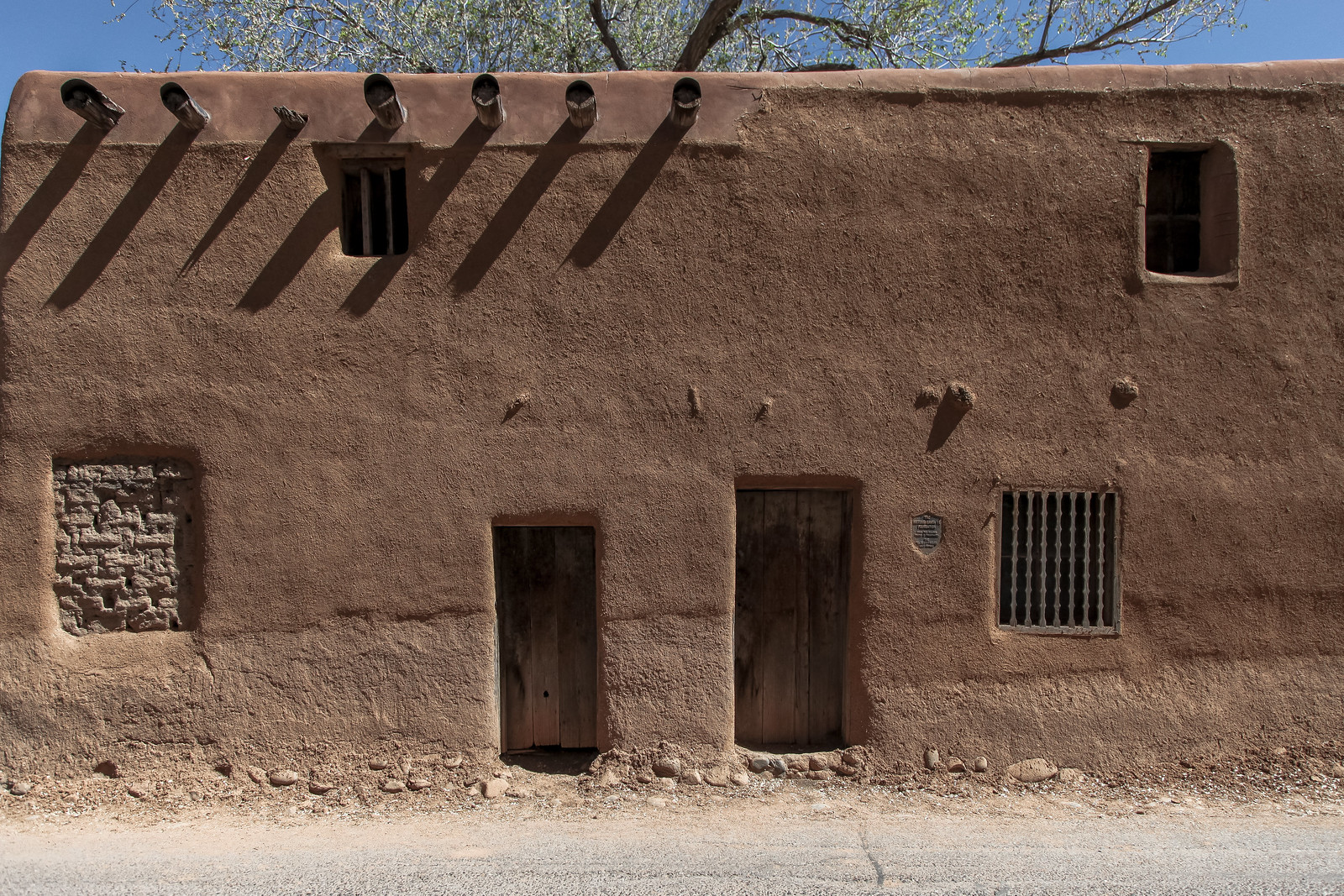
Santa Fe, New Mexico: photo by Jorge Guadalupe Lizárraga, April 2017

Santa Fe, New Mexico: photo by Jorge Guadalupe Lizárraga, April 2017

Santa Fe, New Mexico: photo by Jorge Guadalupe Lizárraga, April 2017
In those stories the hero
is beyond himself into the next
thing, be it those labors
of Hercules, or Aeneas going into death.
I thought the instant of the one humanness
in Virgil's plan of it
was that it was of course human enough to die,
yet to come back, as he said, hoc opus, hic labor est.
That was the Cumaean Sibyl speaking.
This is Robert Creeley, and Virgil
is dead now two thousand years, yet Hercules
and the Aeneid, yet all that industrious wis-
dom lives in the way the mountains
and the desert are waiting
for the heroes, and death also
can still propose the old labors.
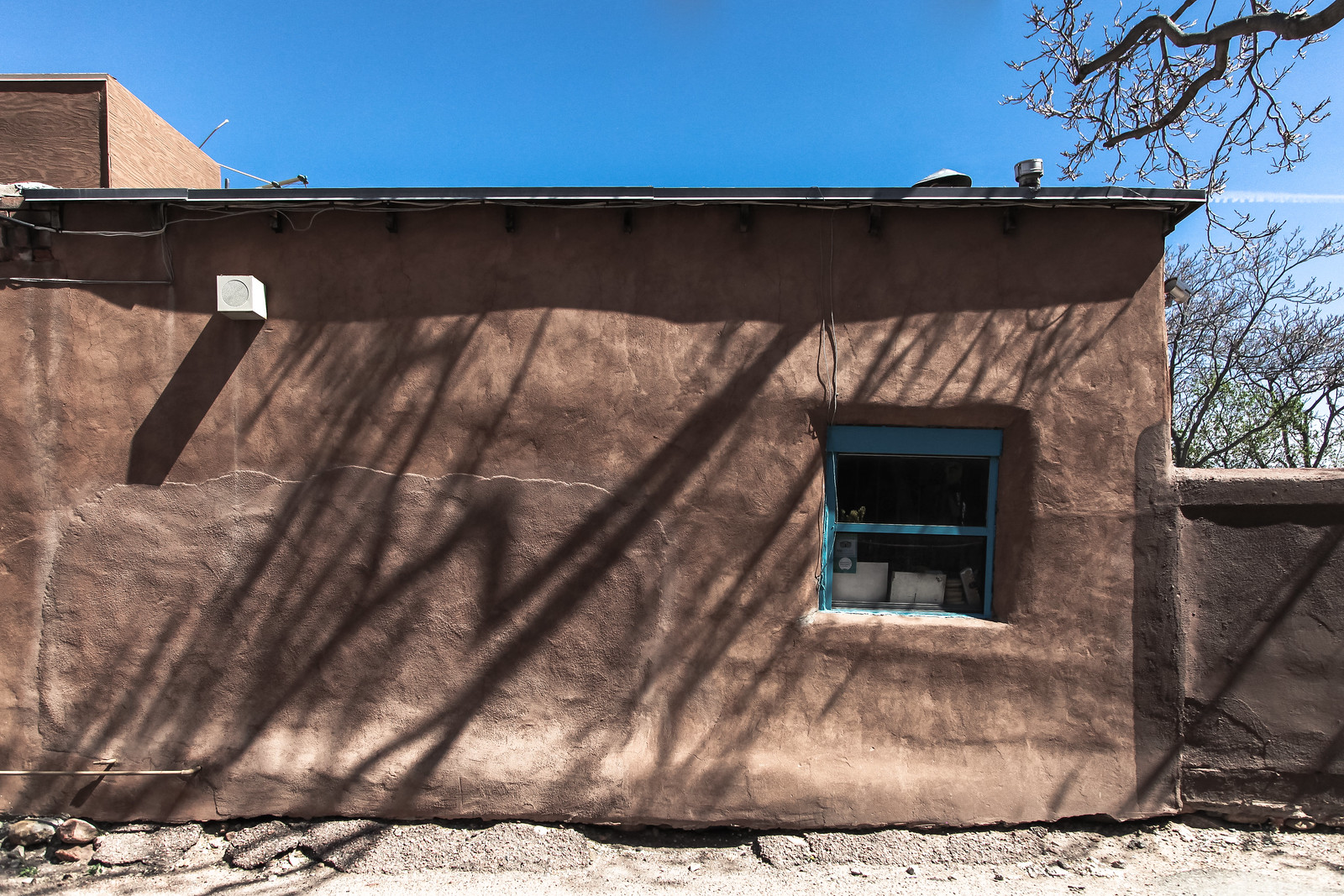
Santa Fe, New Mexico: photo by Jorge Guadalupe Lizárraga, April 2017

Santa Fe, New Mexico: photo by Jorge Guadalupe Lizárraga, April 2017

Santa Fe, New Mexico: photo by Jorge Guadalupe Lizárraga, April 2017
to worry about these
people wouldn't sit there
thinking about what
doesn't even exist they
would take each day as it
comes and thank their
lucky stars they had
enough to eat it says here
it reflects the hopeless
times make what isn't
the case all that is.

Container, detail [Larvik]: photo by astrid westvang, 12 April 2017
Robert Creeley: I Know a Man

Rain, gas station, dawn: photo by Riza Nugraha, 2007
As I sd to my
friend, because I am
always talking -- John, I
sd, which was not his
name, the darkness sur-
rounds us, what
can we do against
it, or else, shall we &
why not, buy a goddamn big car,
drive, he sd, for
christ’s sake, look
out where yr going.

Berlin, Neukölln: photo by Lyd.ium, 10 April 2017
friend, because I am
always talking -- John, I
sd, which was not his
name, the darkness sur-
rounds us, what
can we do against
it, or else, shall we &
why not, buy a goddamn big car,
drive, he sd, for
christ’s sake, look
out where yr going.

Berlin, Neukölln: photo by Lyd.ium, 10 April 2017
I Know a Man: Robert Creeley, (1926-2005) I Know a Man, from For Love, 1962
Robert Creeley: After Lorca

Malaguilla, Provincia de Guadalajara, Castilla-La Mancha, Spain: photo by Häkan Svensson, 2004
for M. Marti
The church is a business, and the rich
are the business men.
poor come piling in and when a poor man dies, he has a wooden
cross, and they rush through the ceremony.
But when a rich man dies, they
drag out the Sacrament
and a golden Cross, and go doucement, doucement
to the cemetery.
And the poor love it
and think it's crazy.
are the business men.
..............................
cross, and they rush through the ceremony.
But when a rich man dies, they
drag out the Sacrament
and a golden Cross, and go doucement, doucement
to the cemetery.
And the poor love it
and think it's crazy.

Olivar en Alcalá la Real, Jaén, España: photo by Michelangelo-36, 2005
After Lorca: Robert Creeley (1926-2005), 1952, from For Love (1960)
All night the sound had
come back again,
and again falls
this quiet, persistent rain.
come back again,
and again falls
this quiet, persistent rain.
What am I to myself
that must be remembered,
insisted upon
so often? Is it
that never the ease,
even the hardness,
of rain falling
will have for me
something other than this,
something not so insistent --
am I to be locked in this
final uneasiness.
Love, if you love me,
lie next to me.
Be for me, like rain,
the getting out
of the tiredness, the fatuousness, the semi-
lust of intentional indifference.
Be wet
with a decent happiness.
Robert Creeley: Heroes

Santa Fe, New Mexico: photo by Jorge Guadalupe Lizárraga, April 2017

Santa Fe, New Mexico: photo by Jorge Guadalupe Lizárraga, April 2017

Santa Fe, New Mexico: photo by Jorge Guadalupe Lizárraga, April 2017
In those stories the hero
is beyond himself into the next
thing, be it those labors
of Hercules, or Aeneas going into death.
I thought the instant of the one humanness
in Virgil's plan of it
was that it was of course human enough to die,
yet to come back, as he said, hoc opus, hic labor est.
That was the Cumaean Sibyl speaking.
This is Robert Creeley, and Virgil
is dead now two thousand years, yet Hercules
and the Aeneid, yet all that industrious wis-
dom lives in the way the mountains
and the desert are waiting
for the heroes, and death also
can still propose the old labors.

Santa Fe, New Mexico: photo by Jorge Guadalupe Lizárraga, April 2017

Santa Fe, New Mexico: photo by Jorge Guadalupe Lizárraga, April 2017

Santa Fe, New Mexico: photo by Jorge Guadalupe Lizárraga, April 2017
Robert Creeley (1926-2005): Heroes, from For Love, 1960
Starlings perform a murmuration at sunset near Gretna Green, in the south of Scotland: photo by Owen Humphreys/PA Wire, 29 November 2016
Multitudes of Starlings appear at Newton, and run feeding about in the grass-fields. No number is known to breed in these parts. This is therefore an emigration from some other district.
Entry for 23 November 1780, in The Journals of Gilbert White
Sometimes it seems just
it feels has nothing but
people who want to live but
out, and free as the birds.
Out the window of the Eismeer station of the Jungfraubahn, Switzerland: photo by Stan Shebs, 1996

#China Chinese workers clean the window of a building in Beijing. Photo @freddufour_afp: image via Frédérique Geffard @fgeffardAFP, 27 April 2017

Robert Creeley: Mother's Voice

Burning the autumn leaves in Norwich, Connecticut: photo by Jack Delano, November 1940 (Farm Security Administration/Office of War Information Collection, Library of Congress)
In these few years
since her death I hear
mother's voice say
under my own, I won't
want any more of that.
My cheekbones resonate
with her emphasis. Nothing
of not wanting only
but the distance there from
common fact of others
frightens me. I look out
at all this demanding world
and try to put it quietly back,
from me, say, thank you,
I've already had some
though I haven't
and would like to
but I've said no, she has,
it's not my own voice anymore.
It's higher as hers was
and accommodates too simply
its frustrations when
I at least think I want more
and must have it.
since her death I hear
mother's voice say
under my own, I won't
want any more of that.
My cheekbones resonate
with her emphasis. Nothing
of not wanting only
but the distance there from
common fact of others
frightens me. I look out
at all this demanding world
and try to put it quietly back,
from me, say, thank you,
I've already had some
though I haven't
and would like to
but I've said no, she has,
it's not my own voice anymore.
It's higher as hers was
and accommodates too simply
its frustrations when
I at least think I want more
and must have it.

Street scene, Brockton [?], Massachusetts: photo by Jack Delano, c. November/December 1940 (Farm Security Administration/Office of War Information Collection, Library of Congress)

Small farm of John P. Collier, Taunton, Massachusetts: photo by Jack Delano, January 1941 (Farm Security Administration/Office of War Information Collection, Library of Congress)
My
mother's people were all Maine people, they had specific ways of saying
things, they spoke with a particular humor. It was a way of speaking
that I learned as a child from my increasingly single parent... The ways
I placed the world were thus given a form in language from early on.
And in emotional moments I now find I increasingly return to that
language that's particularly local to my childhood and to the place
where I was brought up.
Robert Creeley, in Tom Clark: Robert Creeley and the Genius of the American Common Place, 1993
Robert Creeley, in Tom Clark: Robert Creeley and the Genius of the American Common Place, 1993
Robert Creeley (1926-2005): Mother's Voice, from Mother's Voice, 1981
Robert Creeley: Somewhere

Auto accident on Storrow Drive, Boston, 9 a.m.: photo by Ernst Halberstadt, February 1973
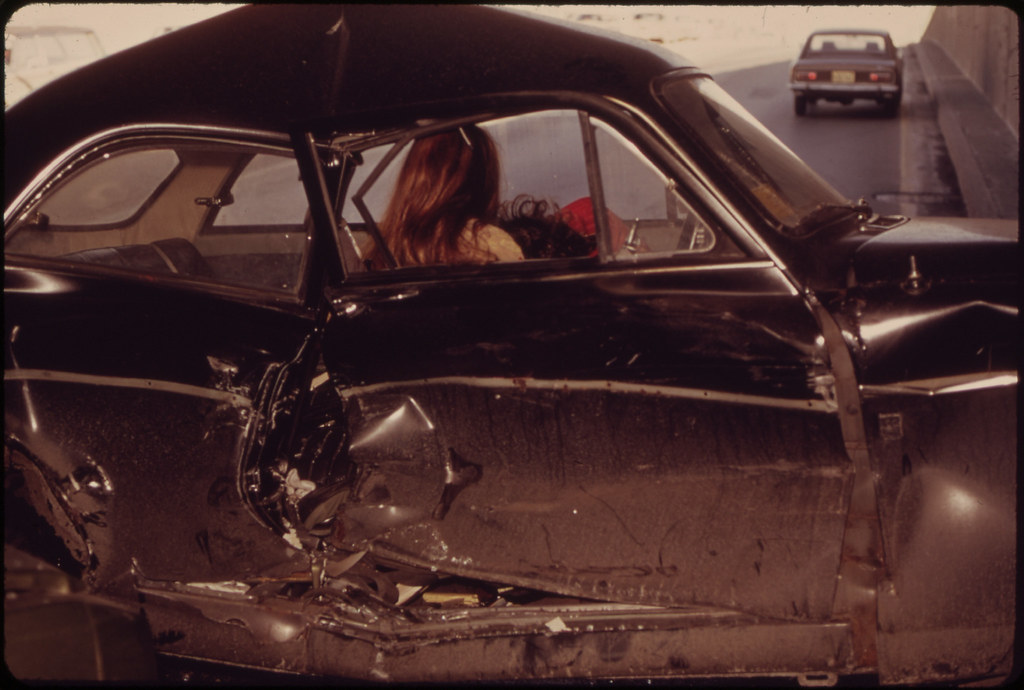
Aftermath of an auto accident on Storrow Drive, Boston, nine o'clock in the morning: photo by Ernst Halberstadt, February 1973
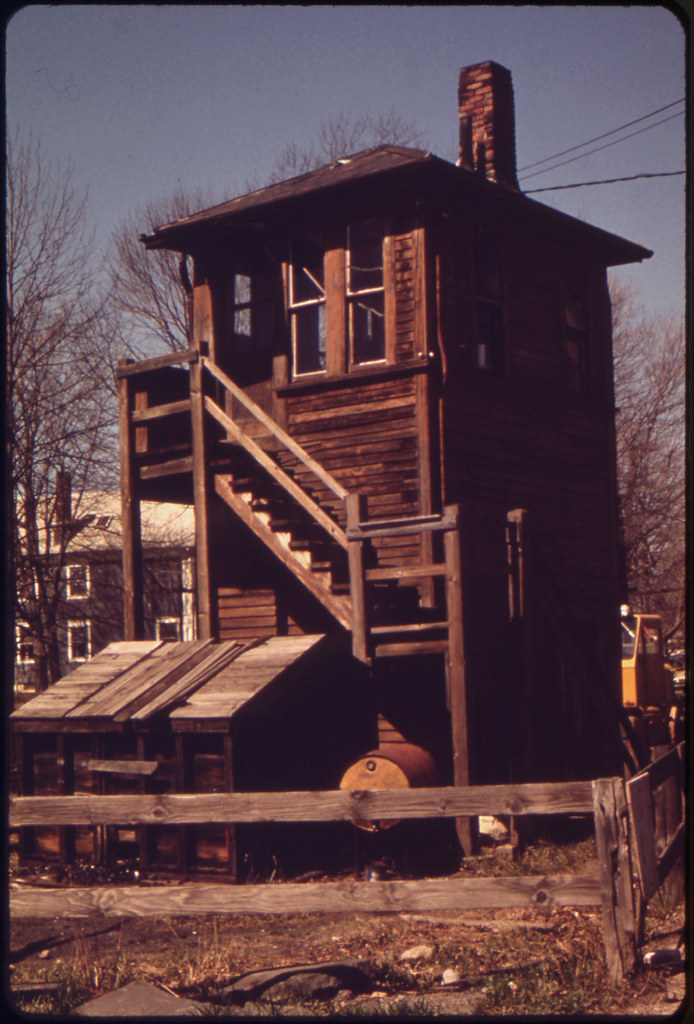
Switch House at the Taunton railroad crossing: photo by Ernst Halberstadt, April 1973
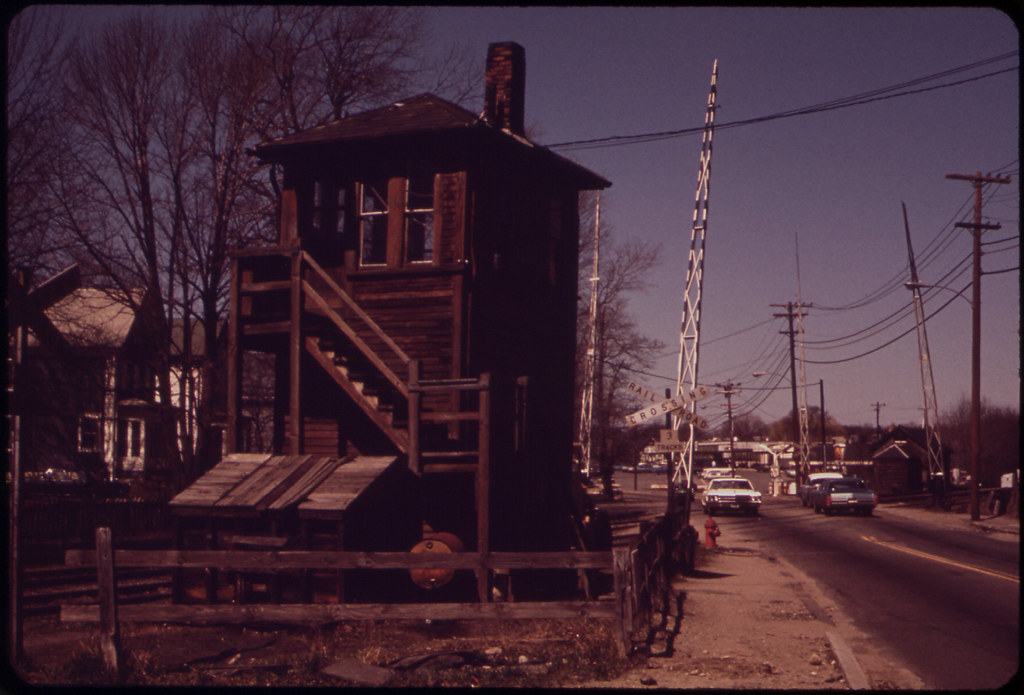
Switch House and Taunton railroad crossing: photo by Ernst Halberstadt, April 1973
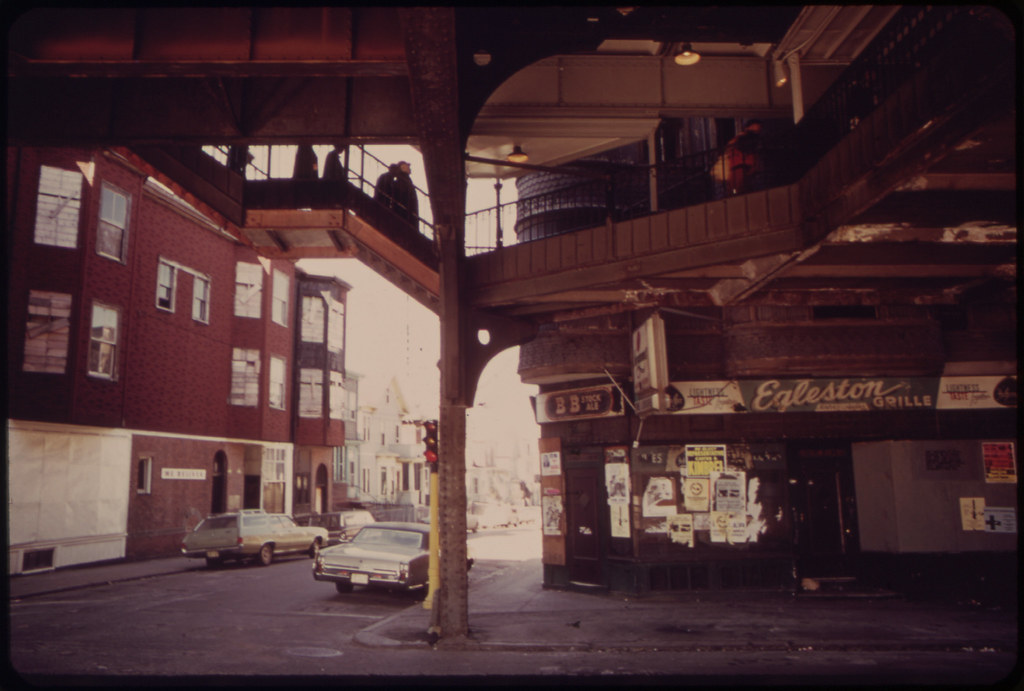
Washington Street under the El, looking toward Eggleston Square: photo by Ernst Halberstadt, February 1973
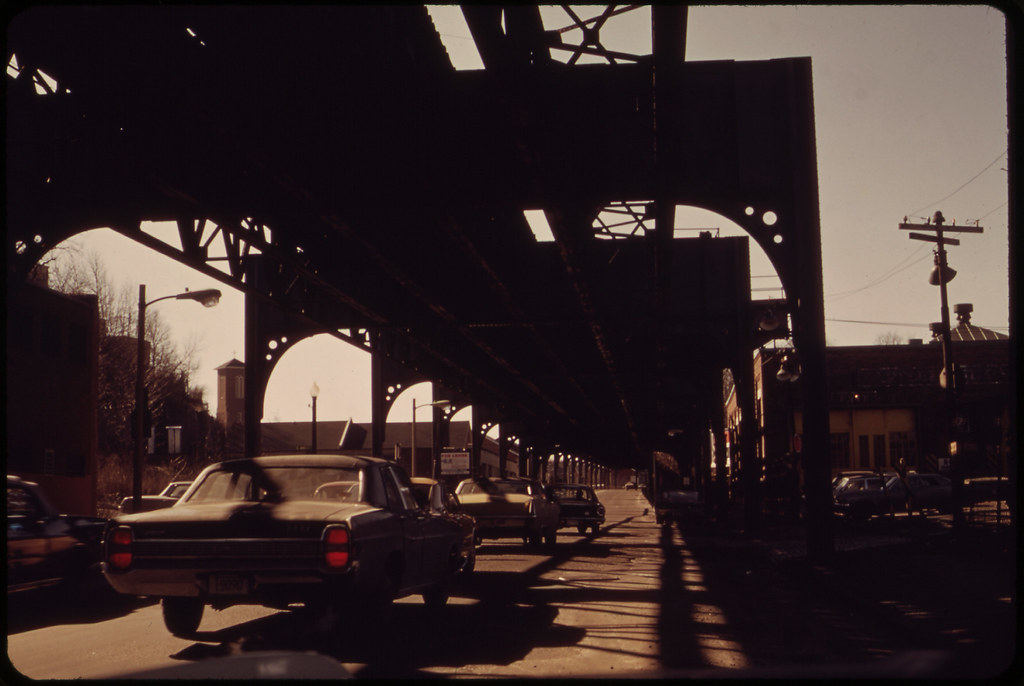
Elevated railroad structure and blighted area below Washington Street, looking south from the corner of Bartlett, Boston, Massachusetts: photo by Ernst Halberstadt (1910-1987) for U.S. Environmental Protection Agency, February 1973 (National Archives and Records Administration)
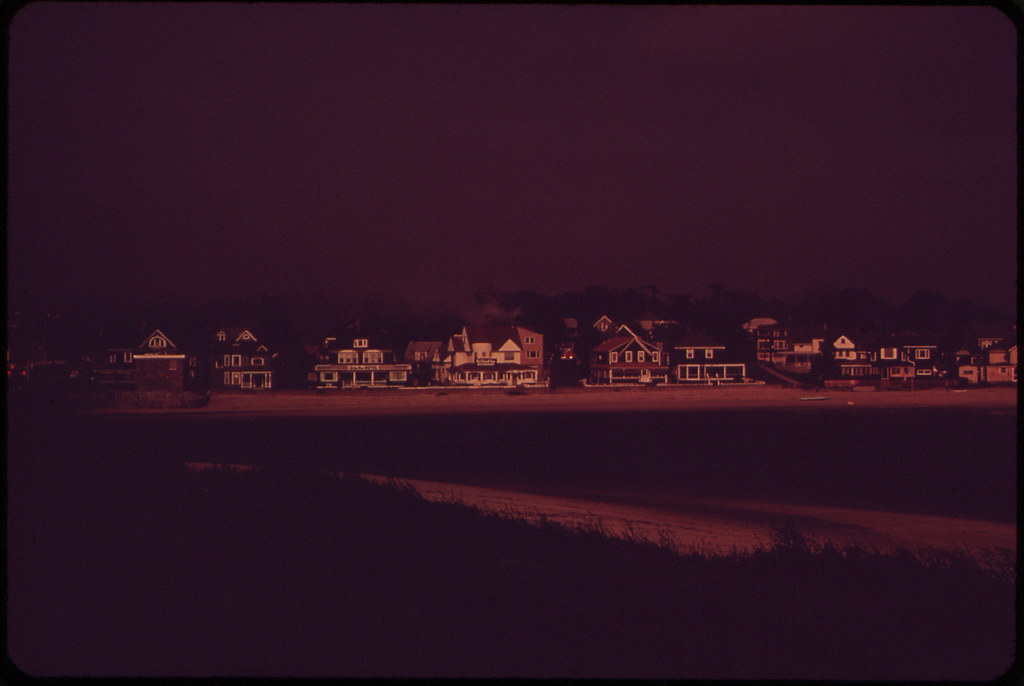
House on fire at Independence Point on Buzzard Bay at Onset: photo by Ernst Halberstadt, May 1973
The galloping collection of boards
are the house which I afforded
one evening to walk into
just as the night came down.
Dark inside, the candle
lit of its own free will, the attic
groaned then, the stairs
led me up into the air.
From outside, it must have seemed
a wonder that it was
the inside he as me saw
in the dark there.
are the house which I afforded
one evening to walk into
just as the night came down.
Dark inside, the candle
lit of its own free will, the attic
groaned then, the stairs
led me up into the air.
From outside, it must have seemed
a wonder that it was
the inside he as me saw
in the dark there.

Aftermath of an auto accident on Storrow Drive, Boston, nine o'clock in the morning: photo by Ernst Halberstadt, February 1973
When
two, seated on the lap of a nurse on the on the front seat of a car
beside my father as he drove through the city of Boston on some errand
or other, I was showered with broken glass full in the face
when a stray lump of coal shattered the side window. Again I recall
nothing of it, and perversely the year that followed must have been a
very happy one because I was not allowed to cry for fear of causing the
affected eye further damage. For some time, then, the eye was left in
place although it seems to have had little function. It began to grow
larger, however, and so, when I was five, just a year after my father's
death, the eye was taken out. That I do remember because my mother told
me we were to go to the hospital on some routine business of her own,
and once there, she suggested I wait inside, which was common enough.
But from there I was taken to the doctor, and so on and so forth, till I
came to with a great bandage covering my head, and the eye gone. So I
wish she had told me, although I rationally understood why she did not,
and why she also had not made clear to me our father wasn't coming back
after we saw him taken away in the ambulance across our front yard in
the snow. We knew nothing of the funeral, or let me speak for myself.
Those tracks fading in the spring thaws mark for me the end of that
previous time entirely.
But it is luck, which was the point, and the paradoxical fact that that his death and my injury had a curious consequence. The company employing the person responsible for the careful shovelful of coal paid damages of some nine thousand dollars, enough to see me through college, toward which I'd been determinedly propelled by my mother's sense of duty to my father.
Robert Creeley: from Autobiography, 1989, in Tom Clark: Robert Creeley and the American Common Place, 1993
Creeley was like the loyal philosopher brother one dreams of having. Creeley spoke almost dreamlike about loss. I truly believe he would have been the only one to help me see clearly. After all, he had suffered real loss himself, and his sense of psychic loss clung to him like a halo.
Jim Dine: from I Know About Creeley, 2012)
But it is luck, which was the point, and the paradoxical fact that that his death and my injury had a curious consequence. The company employing the person responsible for the careful shovelful of coal paid damages of some nine thousand dollars, enough to see me through college, toward which I'd been determinedly propelled by my mother's sense of duty to my father.
Robert Creeley: from Autobiography, 1989, in Tom Clark: Robert Creeley and the American Common Place, 1993
Creeley was like the loyal philosopher brother one dreams of having. Creeley spoke almost dreamlike about loss. I truly believe he would have been the only one to help me see clearly. After all, he had suffered real loss himself, and his sense of psychic loss clung to him like a halo.
Jim Dine: from I Know About Creeley, 2012)

Switch House at the Taunton railroad crossing: photo by Ernst Halberstadt, April 1973

Switch House and Taunton railroad crossing: photo by Ernst Halberstadt, April 1973

Washington Street under the El, looking toward Eggleston Square: photo by Ernst Halberstadt, February 1973

Elevated railroad structure and blighted area below Washington Street, looking south from the corner of Bartlett, Boston, Massachusetts: photo by Ernst Halberstadt (1910-1987) for U.S. Environmental Protection Agency, February 1973 (National Archives and Records Administration)

House on fire at Independence Point on Buzzard Bay at Onset: photo by Ernst Halberstadt, May 1973
Robert Creeley (1926-2005): Somewhere, from For Love, 1962
Photos by Ernst Halberstadt, 1973, for the Environmental Protection Agency's Documerica Project (U.S. National Archives)
Robert Creeley: For Debora
An ethnic Rohingya Muslim woman looking back as she rides a tuk tuk
near a camp set up outside the city of Sittwe in Myanmar’s Rakhine
state. Malaysia ordered search and rescue missions Friday for thousands
of boatpeople stranded at sea, as Myanmar hosted talks with US and
Southeast Asian envoys on the migrant exodus from its shores: photo by Ye Aung Thu/AFP, 22 May 2015


An ethnic Rohingya Muslim woman looking back as she rides a tuk tuk
near a camp set up outside the city of Sittwe in Myanmar’s Rakhine
state. Malaysia ordered search and rescue missions Friday for thousands
of boatpeople stranded at sea, as Myanmar hosted talks with US and
Southeast Asian envoys on the migrant exodus from its shores: photo by Ye Aung Thu/AFP, 22 May 2015
"I have forgotten all
human relations, but not
poetry." I have for-
gotten all that seemed
significant but not
the consequence. I have
never seen this before
this I have wanted to
make this trip many
times but got lost getting
there I have had many
sorrows in my literal
life but much happiness
also I have forgotten
what it was they thought
to remember. I have forgotten.
human relations, but not
poetry." I have for-
gotten all that seemed
significant but not
the consequence. I have
never seen this before
this I have wanted to
make this trip many
times but got lost getting
there I have had many
sorrows in my literal
life but much happiness
also I have forgotten
what it was they thought
to remember. I have forgotten.
A Palestinian boy rests on an old armchair in front of a dilapidated house on Friday in Gaza City: photo by Mohammed Abed/AFP, 22 May 2015

A Palestinian boy rests on an old armchair in front of a dilapidated house on Friday in Gaza City: photo by Mohammed Abed/AFP, 22 May 2015
Robert Creeley (1926-2005): For Debora, from Places, 1990
Robert Creeley: Love

In the Forest of Fontainebleau: Camille Corot (1796-1875), c. 1860-65, oil on canvas, 46 x 59 cm (National Gallery of Art, Washington)
Nothing is without place,
in mind, in physical apprehension --
or if "a dagger of the mind" is the purpose,
hold on to it for dear life, or else kill somebody.
Just when I thought I had it made, I lost it.
Just when I knew what to do, I was an old man.
You hear that bird sing in the tree, there,
you know still what a tree is?
Love is a place, not a person, love is
a weather of time, a convenience to absent sorrows.
But talk is the cheapest of all, means what it wants to,
waits up for no one, always goes home alone.
Robert Creeley (1927-2005): Love, from Places, 1990

Fontainbleau, the Bas Breau Road: Camille Corot (1796-1875), c. 1830-35, oil on canvas (private collection)
Robert Creeley (1927-2005): Love, from Places, 1990
Robert Creeley: So There

Persian lacquer binding, 18th century: cover of Persian manuscript: Collected Works of Ḥāfiẓ: Dīvān-i Ḥāfiẓ [?1799] (Rare Books and Fine Printing Collection, Alexander Turnbull Library, National Library of New Zealand)
...for Penelope Highton
Da. Da. Da da.
Where is the song.
What’s wrong
with life
ever. More?
Or less --
days, nights,
these
days. What's gone
is gone forever
every time, old friend's
voice here. I want
to stay, somehow,
if I could --
if I would? Where else
to go.
The sea here's out
the window, old
switcher's house, vertical,
railroad blues, lonesome
whistle, etc. Can you
think of Yee's Cafe
in Needles, California
opposite the train
station -- can you keep
it ever
together, old buddy, talking
to yourself again?
Meantime some yuk
in Hamilton has blown
the whistle on a charming
evening I wanted
to remember otherwise --
the river there, that
afternoon, sitting,
friends, wine & chicken,
watching the world go by.
Happiness, happiness --
so simple. What's
that anger is that
competition -- sad! --
when this at least
is free,
to put it mildly.
My aunt Bernice
in Nokomis,
Florida's last act,
a poem for Geo. Washington's
birthday. Do you want
to say ‘It's bad’?
In America, old sport,
we shoot first, talk later,
or just take you out to dinner.
No worries, or not
at the moment,
sitting here eating bread,
cheese, butter, white wine --
like Bolinas, ‘Whale Town,’
my home, like they say,
in America. It's one world
it can't be another.
So the beauty,
beside me, rises,
looks now out window --
and breath keeps on breathing,
heart's pulled in
a sudden, deep, sad
longing, to want
to stay -- be another
person some day,
when I grow up.
The world's somehow
forever that way
and its lovely, roily,
shifting shores, sounding now,
in my ears. My ears?
Well, what's on my head
as two skin appendages,
comes with the package,
I don't want to
argue the point.
Tomorrow
it changes, gone,
abstract, new places --
moving on. Is this
some old time weird
Odysseus trip
sans paddle -- up
the endless creek?
Thinking of you,
baby, thinking
of all the things
I'd like to say and do.
Old fashioned time
it takes to be
anywhere, at all.
Moving on. Mr. Ocean,
Mr. Sky's
got the biggest blue eyes
in creation --
here comes the sun!
While we can,
let's do it, let's
have fun.
Robert Creeley: So There, from Hello (Hawk Press, Taylors Mistake, Christchurch, New Zealand), 1976
Da. Da. Da da.
Where is the song.
What’s wrong
with life
ever. More?
Or less --
days, nights,
these
days. What's gone
is gone forever
every time, old friend's
voice here. I want
to stay, somehow,
if I could --
if I would? Where else
to go.
The sea here's out
the window, old
switcher's house, vertical,
railroad blues, lonesome
whistle, etc. Can you
think of Yee's Cafe
in Needles, California
opposite the train
station -- can you keep
it ever
together, old buddy, talking
to yourself again?
Meantime some yuk
in Hamilton has blown
the whistle on a charming
evening I wanted
to remember otherwise --
the river there, that
afternoon, sitting,
friends, wine & chicken,
watching the world go by.
Happiness, happiness --
so simple. What's
that anger is that
competition -- sad! --
when this at least
is free,
to put it mildly.
My aunt Bernice
in Nokomis,
Florida's last act,
a poem for Geo. Washington's
birthday. Do you want
to say ‘It's bad’?
In America, old sport,
we shoot first, talk later,
or just take you out to dinner.
No worries, or not
at the moment,
sitting here eating bread,
cheese, butter, white wine --
like Bolinas, ‘Whale Town,’
my home, like they say,
in America. It's one world
it can't be another.
So the beauty,
beside me, rises,
looks now out window --
and breath keeps on breathing,
heart's pulled in
a sudden, deep, sad
longing, to want
to stay -- be another
person some day,
when I grow up.
The world's somehow
forever that way
and its lovely, roily,
shifting shores, sounding now,
in my ears. My ears?
Well, what's on my head
as two skin appendages,
comes with the package,
I don't want to
argue the point.
Tomorrow
it changes, gone,
abstract, new places --
moving on. Is this
some old time weird
Odysseus trip
sans paddle -- up
the endless creek?
Thinking of you,
baby, thinking
of all the things
I'd like to say and do.
Old fashioned time
it takes to be
anywhere, at all.
Moving on. Mr. Ocean,
Mr. Sky's
got the biggest blue eyes
in creation --
here comes the sun!
While we can,
let's do it, let's
have fun.
Robert Creeley: So There, from Hello (Hawk Press, Taylors Mistake, Christchurch, New Zealand), 1976

"New life": Lane's Emulsion restores and maintains health: Stanley Davis (1882?-1938), colour lithograph by the Christchurch Press, 1927 (Printed Ephemera Collection, Alexander Turnbull Library, National Library of New Zealand)

Maltexo for Growing Greater: New Zealand Railways poster for Wilson's Maltexo, chromolithograph, c. 1935 (Printed Ephemera
Collection, Alexander Turnbull Library, National Library of New Zealand)

The Great Levante … How's Tricks: poster for Opera House, Wellington, chromolithograph, 1941 (Printed Ephemera Collection, Alexander Turnbull Library, National Library of New Zealand)

The Fun of the Fair: poster for New Zealand Centennial Exhibition of 1939-40, offset lithograph by Charles Haines Advertising Agency Ltd, N.Z., November 1939 (Printed Ephemera Collection, Alexander Turnbull Library, National Library of New Zealand)

New Zealand Line. R.M.S. Rangitata in Gaillard Cut: poster for New Zealand Shipping Company Ltd, screenprint, early 1930s (Printed Ephemera Collection, Alexander Turnbull Library, National Library of New Zealand)
bobsan88: Middlemarch

Middlemarch, Central Otago: photo by bobsan88, 10 March 2017

Weddeburn, Central Otago: photo by bobsan88, 10 March 2017

Naseby, Central Otago: photo by bobsan88, 9 March 2017

Ophir, Central Otago: photo by bobsan88, 7 March 2017

Clyde, Central Otago: photo by bobsan88, 5 March 2017

Haast, South Westland: photo by bobsan88, 5 March 2017

Fox, South Westland: photo by bobsan88, 4 March 2017

Clyde, Central Otago: photo by bobsan88, 5 March 2017

Rambla. Collingwood, Golden Bay.: photo by bobsan88, 23 February 2017

Westport, NZ: photo by bobsan88, 22 April 2017

Okarito, South Westland, NZ: photo by bobsan88, 25 April 2017
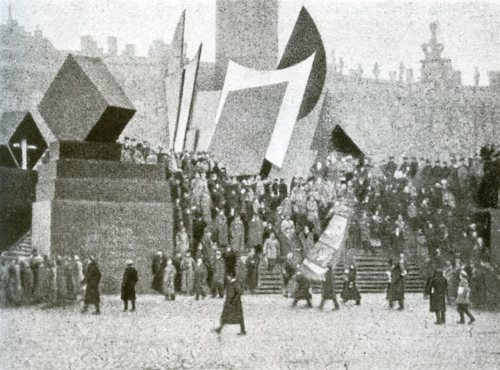


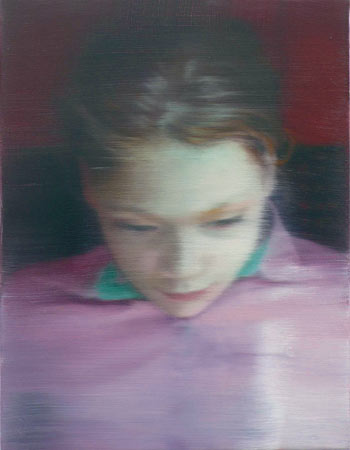
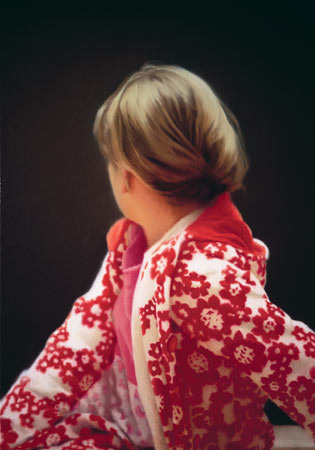
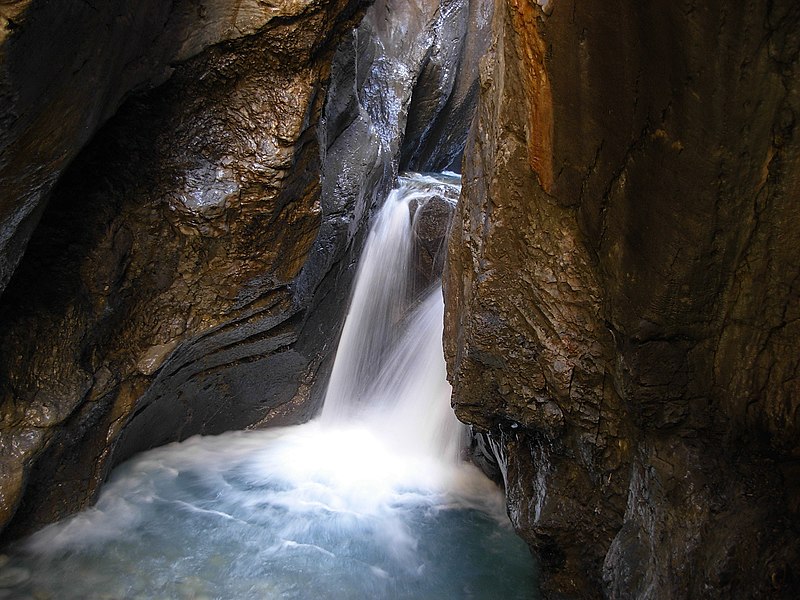

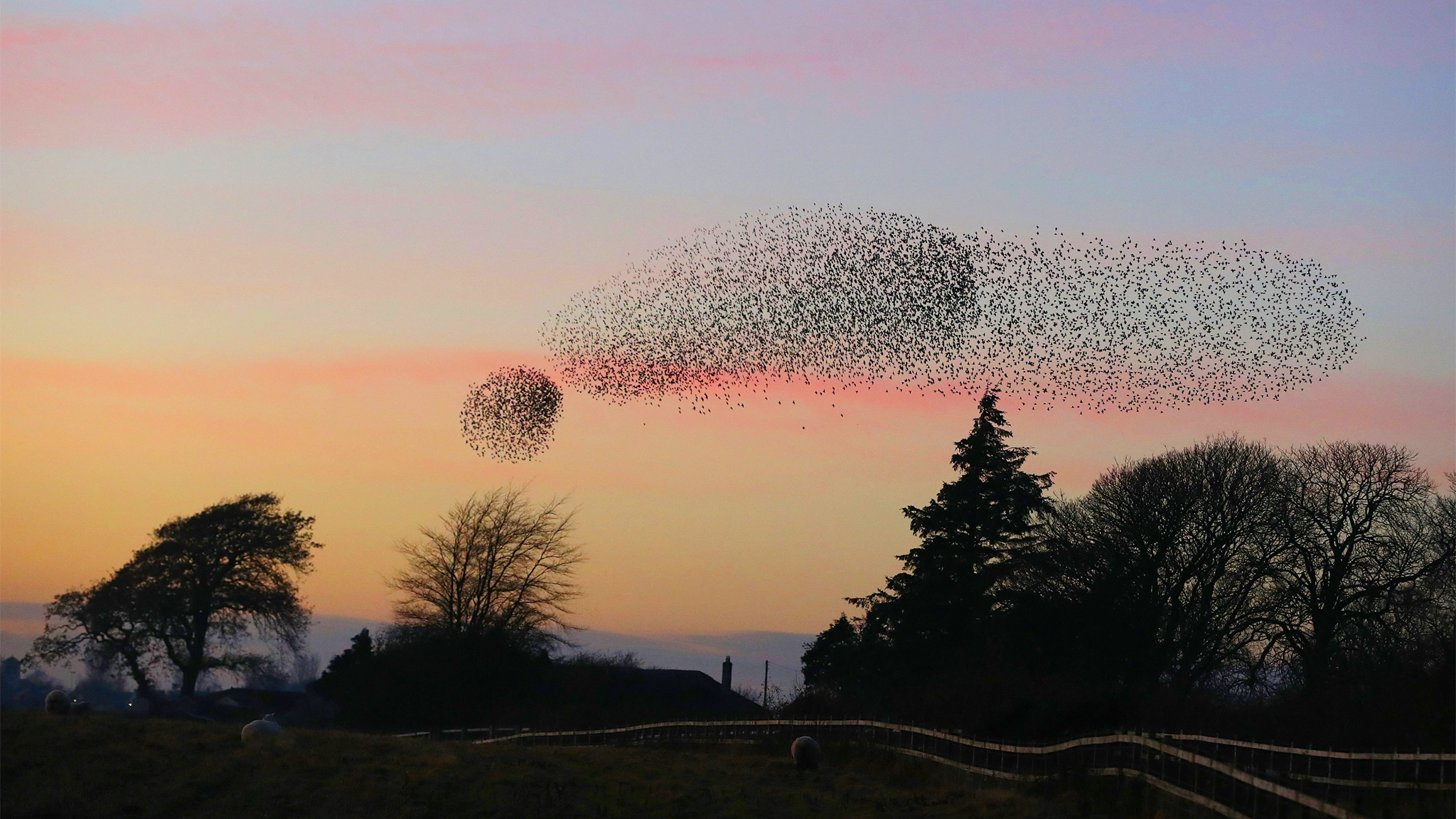

wonderful poems and photos..."Generous life"....the title wins !
ReplyDeleteThanks, Sandra, glad you like.
ReplyDeleteThank you for the work and heart that went into this moving tribute.
ReplyDeleteThank you, Jasper. I expect you will be able to fathom some sense of the scale of the job. Exhausting, but once begun with something, if the something is of value, there can be no turning back, as I'm sure you also understand. It may be hard to hold in the mind at any single moment all the things that seem to be converging upon the instant meaning of the present. These latter years moreover it has seemed more difficult than ever to sort those things, as we flail and flounder along in the accumulating dark. For me RC's work has remained a beacon, through all this. The memorial function of poetry, to keep the memory green, is also, to my mind, very close to the principal duty of the living now, if anything of value is to remain.
ReplyDeleteThrough much of the labour here, by the way, the sky overhead was abuzz with circulating police helicopters, monitoring the latest proto fascist invasion of our entirely undeserving little town. We are now unwilling host to ambitious grifter thugs from all over, like the charming young fellow seen at the top of his post, who has become, unbelievably as one might have thought, a hero to those for whom hate is value. Nowhere to hide... and America, we have nowhere but you to be.
Having lived with these words throughout my adult life, no surprise the ones that jumped out, "this is Robert Creeley speaking." On the occasion of our 44th anniversary in the Woodman household, we thank you Tom Clark for this gift.
ReplyDeleteCongratulations, brave Woodman and Mrs. Woodman!
ReplyDelete